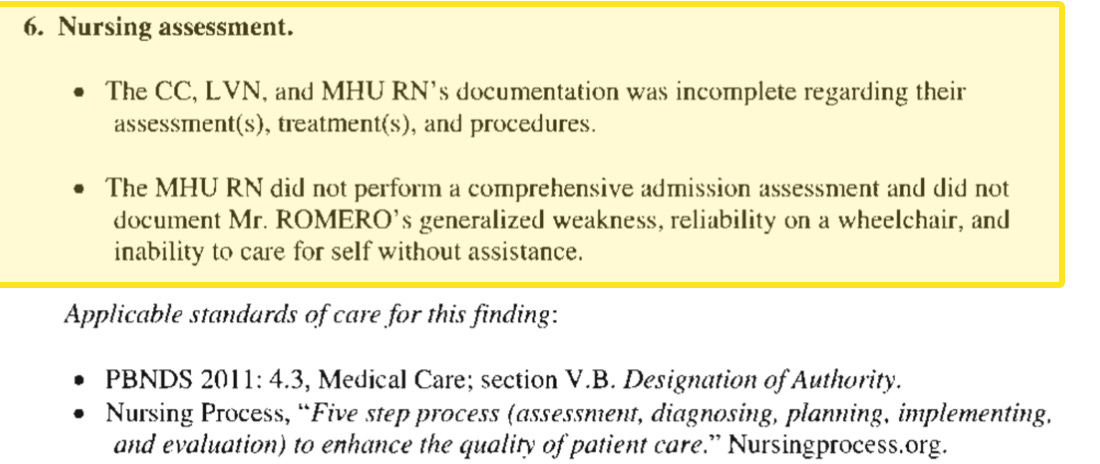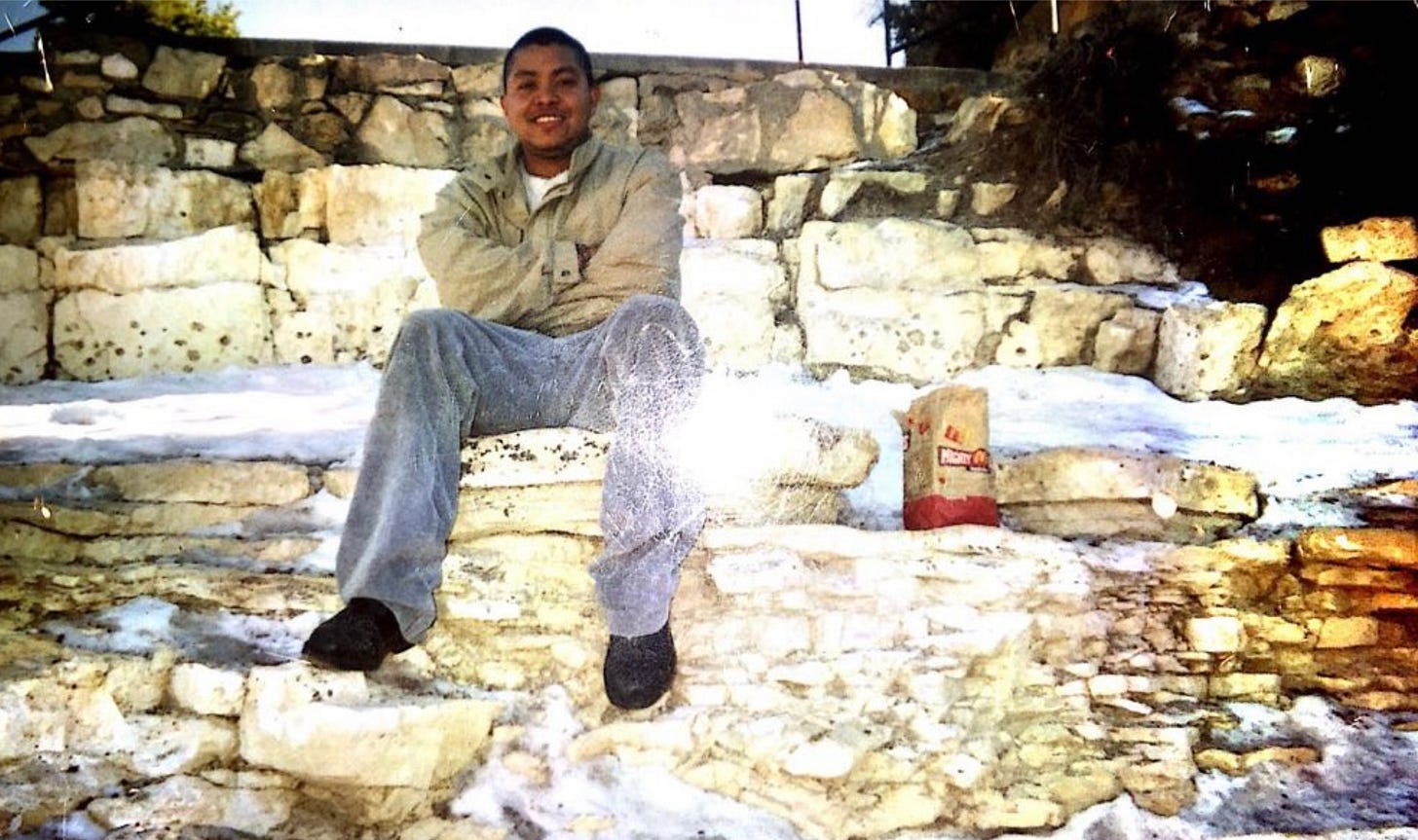"Within Safe Limits of Practice" #DetentionKills Transparency Initiative FOIA Journal v.2022-3
Ronal Francisco Romero died at the height of Zero Tolerance. We unpack what ICE's Mortality Review Committee concluded after reviewing records of his 30 hours in the agency's custody at Port Isabel.
Can we ask you for a favor? A small kindness? An act of grace?
It’s not much, but it would mean the world to us if you’d consider it. Yes: you—the busy person who’s just checking to see if there’s anything new here worth paying attention to.
The favor we want to ask of you is this:
Imagine, as you read what comes next, that the subject of these records is a loved one of yours who has passed away. Call to mind the face of someone close to you. Someone who’s here, or someone who’s already gone. Could be a partner, child, parent, teacher, or sibling. Think about the things you love about that person. Feel the feelings, for a moment, that come with visualizing that person’s face, or feeling that person’s touch, or breathing in their smell. Marvel in their small, idiosyncratic gestures. Remember that thing they did that made you laugh. Or cry. Or shout. Keep them in mind.
Because for the family of the subject of these records, how you might feel is how they do feel. For them, it is a lived, waking reality. Every moment.
Deep breath. Thank you in advance!
“Within Safe Limits of Practice”
On December 6, 2018, a committee of medical professionals employed by U.S. Immigration and Customs Enforcement (ICE) Health Services Corps (IHSC) completed a mortality review (MR). The subject of this MR was the May 16, 2018, death of Ronal Francisco Romero in Harlingen, Texas. Ronal died at Valley Baptist Medical Center in Harlingen following just over 2 days of ICE detention at the Port Isabel Detention Center (PIDC) in Los Fresnos, TX.
In the wake of Ronal’s death, his Mother sought answers. Now, four years later, she’s starting to get some. Specifically, we’ve been attempting to get a copy this review on his family’s behalf through the Freedom of Information Act (FOIA) since May of 2019. As we noted in Vol. 2022-1, ICE recently released it after more than three years of silence.
“Weaknesses”
The findings of the 7-page MR reveal shocking new details of about the care Ronal received—and the care he didn’t—during his 30 hours at PIDC.
Many of these details had been previously withheld, denied, or apparently falsified by ICE’s prior public communications, as documented below.
Ronal was being treated for what providers thought was an ear infection while caged (literally) inside CBP’s McAllen processing center between May 9, 2018, and May 14, 2018. CBP TED Standards provide for only 72 hours of detention in these spaces.
When he got to PIDC, Ronal had been sick for days. He tried to tell the people responsible for his medical care that this was this case. He raised his hand and pointed to his ear when medical providers asked if he was receiving treatment or had medical needs.
We know this only because it appears on the facility’s video. It’s not in the records. In fact, ICE’s publicly available records say the opposite. That is because the two PIDC medical providers providers—an RN and an LVN—conducted an unauthorized group medical pre-screening intake.
That pre-screening intake consisted of asking many different individuals in a single room about their health problems, in front of each other. Officials then shredded handwritten notes, and didn’t write down what Ronal said, or even that he identified himself as someone with medical needs.
Making matters worse, the meds CBP sent with him—three outstanding doses of the prescription meant to treat what was believed to be an ear infection CBP mistakenly believed he had—didn’t make their way to nursing staff at PIDC. That’s because custody personnel (guards) checked them into Ronal’s personal property, and didn’t tell the medical providers about them.
None of this is consistent with the official story ICE told Congress in 2018 when releasing is 4-page death review.
Once at PIDC, Ronal’s medical condition deteriorated rapidly. Short-staffed by 40% for a facility with over 1000 souls locked inside, pill nurses had only 2 of the required 4-5 positions they need to ensure people like Ronal got the medicine they needed when they needed it.
He missed at least two doses of his medication in only 30 hours, not including the three pills that he should have been administered in his course the care initiated at CBP’s McAllen facility. He also didn’t get care at PIDC when it was ordered by providers:
Ronal eventually grew so weak, listless, and unable to care for himself that he had to be placed in a wheelchair and brought into the medical housing area on an emergent basis. But the only emergency nurse on staff providing emergent care was tending to another medical emergency when he got there, and the backup that nurse was supposed to have was elsewhere in the facility.
The IV fluids Ronal was prescribed were administered by a provider whose license did not authorize them to perform that procedure, absent training on-site, which PIDC and IHSC do not offer.
The care team responsible for his well-being failed to communicate with each other during shift changes, failed to document the care they’d provided, and failed to perform follow-on diagnostics without prompting from the advance practice provider.
He died, according to the State of Texas, of “meningitis, clinical history of diabetic ketoacidosis, clinical history of sepsis, and no evidence of trauma.”
After making the above findings, ICE’s Mortality Review Committee concluded the care Ronal received at PIDC—the botched group intake screening, the missed meds, the communications breakdowns, the failure to document care provided, the shredding of federal medical records, the delayed and unauthorized medical care, the medical understaffing, and the rapid deteriorating without timely intervention—was “within safe limits of practice.”
Adding insult to mortal injury, the IHSC MRC faults Ronal for failing to tell providers about the care he’d received in CBP custody, while simultaneously concluding that given his rapidly deteriorating condition, it wouldn’t have changed the outcome:
In other words IHSC concluded that none of the violations of standards mattered because: “Ronal was going to die anyway.” Pay no attention to the what the science says about how painful it is to die of bacterial meningitis, and the suffering Ronal experienced as a result of delays in care, says ICE. Pay no attention to the internal inconsistencies or the fact that we’ve concluded providers engaged in the authorized practice of nursing care. Pay no attention to what we found. Ronal was going to die. So we are not responsible.
One wonders if the MRC would have been included to make a similar finding if it knew it had to do so in public, in front of Ronal’s family, with his memory staring them in the face.1
Silence from DHS, CBP
ICE’s Mortality Review Finding implicates the care Ronal received at the CBP McAllen center. People generally don’t die of bacterial meningitis if they receive timely emergency are. They seek it because it’s a very painful thing to be dying from. The pressure behind your ear where the infection is on your brain.
Or your loved one’s brain. The one you’ve been remembering as you think about what these records show Ronal experienced. The loved one who may once have smiled at you like this, but won’t ever again.
If you are a current or former government official or contractor, the power of your individual conscience, strategically multiplied, carries liberatory potential.

















